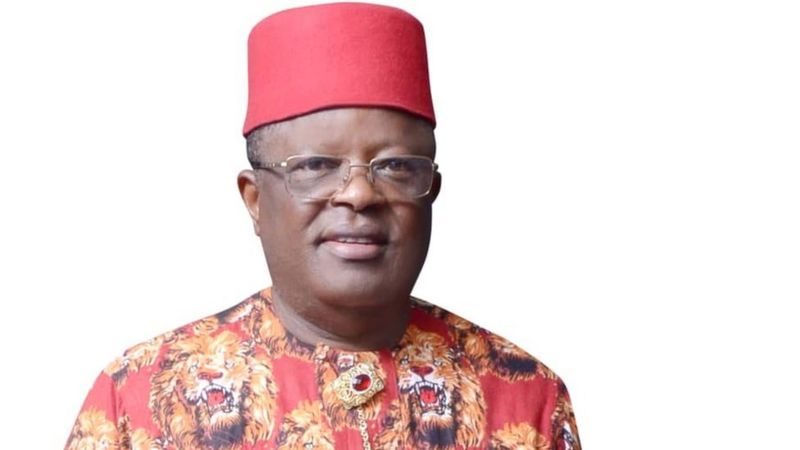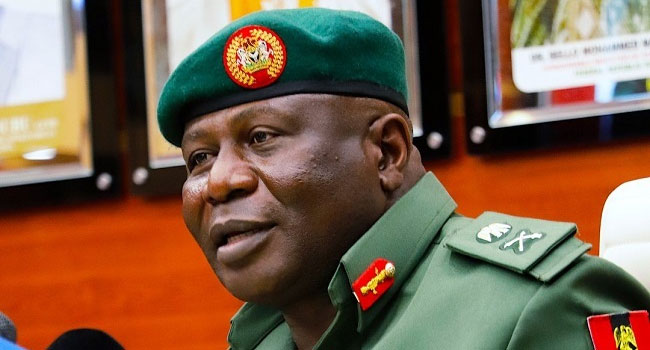Ebonyi State Governor David Umahi who also double as the
Chairman of the South-East Governors Forum has said that agitation against marginalization of the zone has been hijacked by criminals.
Ebonyi State Govrrnor said this when happeared on Channels TV’s breakfast show Sunrise Daily on Wednesday.
The governor was speaking about the security situation in the South-East, the activities of the proscribed Indigenous People of Biafra (IPOB) and other issues, a day after governors of the region announced that a security outfit “Ebube Agu” will be established in the five states that make up the region before the end of the year.
“At the initial time, it was an issue of ‘look, we are being marginalised. A lot of people keyed into that,” Governor Umahi said of the initial agitations in the region.
“Then, along the line, it developed into violence. And then later, the same agitation has been hijacked by criminals, bandits and kidnappers.”
The Governor explained that the grievances of people in the region over the years had led to support for IPOB, which had said it was fighting against the marginalisation of the region.“A lot of people keyed in,” he said.
“If anybody had grievances with the centre (Federal Government), the person became a supporter of IPOB. If you sort anything at the federal level and you fail to get it, you become a supporter of IPOB.
Those in the diaspora that went for greener pastures and they failed to get such become very bitter with the Nigerian society. And so, followers kept growing.”
According to the governor, the situation worsened when the conflicts with herdsmen came up.
“They were a couple of killings in the South-East and the people were a bit helpless and felt the governors were not protecting them,” he said, adding that though the governors did a lot to ensure that there was peace between the herders and people, residents were not satisfied.
“You see, some uninformed elements felt that the only way to solve the problem between us and herdsmen was to ask them to leave the South-East.”
The preferred option for these elements, he explained, was not nationalistic because people from the South-East also live in the north.
“Then came the IPOB with ESN (Eastern Security Network), which is the militant aspect of IPOB, and they started to issue orders of threats,” the governor said.
So, along the line, the whole exercise has been hijacked. In the South-East, we no longer have kidnappers; everyone that commits one criminal act or the other claims to be IPOB.”
Governor Umahi accused some politicians, who he did not name, of capitalising on the situation.
These politicians, he said, “began to import killers from outside the South-East to advance their political interests”.
The governor, however, stressed that the people were beginning to understand the situation and support for IPOB is declining due to the actions of the group and the level of violence in the region.
He added that once the issues of leadership and development that led to cries of marginalisation were addressed to complement efforts being made by the governors to tackle the situation, security will improve in the region.
According to the governor, it is the failure of the Federal Government to treat the region equally that has led to agitations and calls for secessionist state, Biafra.
“This idea of Biafra, Biafra is madness,” he said, adding that most elites in the south east do not want Biafra.
“We don’t want Biafra. We only want to be treated equally like other regions in Nigeria,” Governor Umahi stressed.
Speaking of the sit-at-home order, which he says is mostly issued by people in diaspora, the governor lamented that the south-east people are complying only out of fear and not because they want to be obedient.
“If we had a policeman to everybody, nobody is going to obey any sit at home,” he said.
He, therefore, promised that governors from the region will continue doing what they can to safeguard the people because “we cannot have Biafra by the way they are going about it”.



